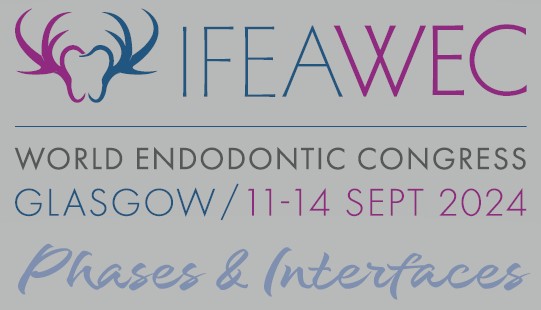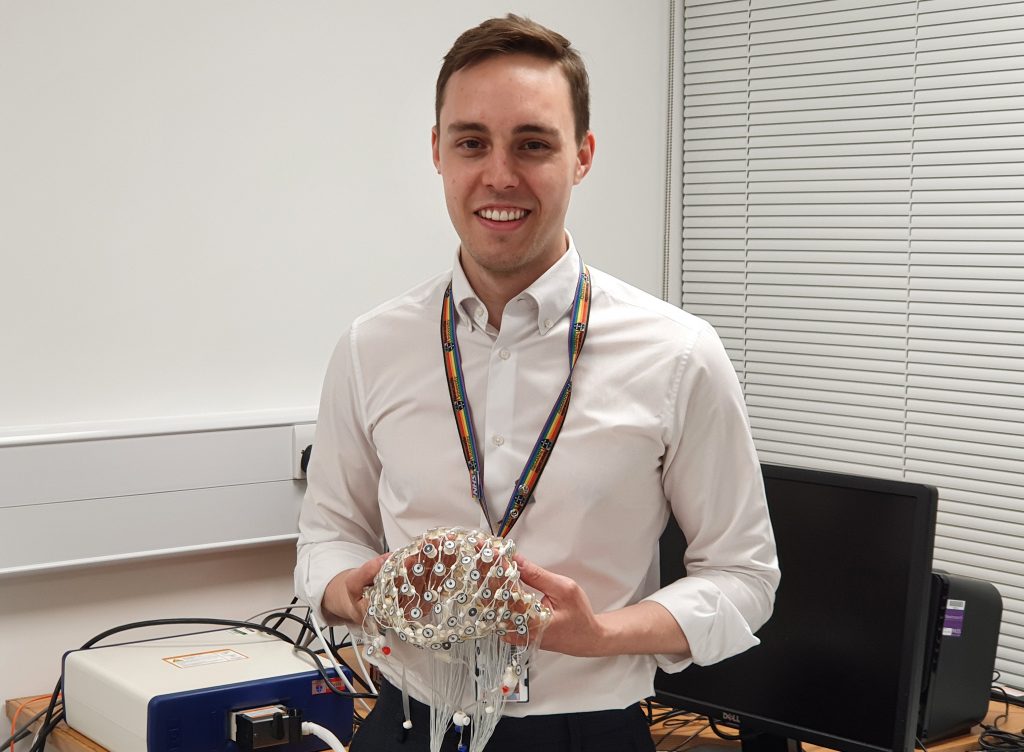The team were well represented, with Professor Justin Durham, Dr Jamie Coulter, and Dr David Edwards presenting their research at the World Endodontic Congress held in in Glasgow in Sept 2024.
Click here to access materials from this conference

The team were well represented, with Professor Justin Durham, Dr Jamie Coulter, and Dr David Edwards presenting their research at the World Endodontic Congress held in in Glasgow in Sept 2024.
Click here to access materials from this conference

James was invited to speak at the European Academy of Orofacial Pain and Dysfunction in Brussles in August 2024, on temporomandibular disorders (TMD), fatigue, and the autonomic nervous system. Click here for the materials from this conference.
This area of research formed the background to the ongoing Elucidate study which looks at pain in TMD and chronic fatigue syndrome, and aims to understand more about the influence of the autonomic nervous system.

Several members of the team attended the International Association for Dental Oral and Craniofacial Research General Session in New Orleans in March 2024 and presented their research.
This was an exciting meeting, and a chance to discuss pain research with other researchers and scientists from amount the world. Highlights were sessions held by the International Network for Orofacial Pain and Related Disorders Methodology (INfORM), including an invited session “Bruxism as a sign of a disorder: an international consensus invitation-only workshop” attended by Professor Justin Durham.

Attendees at the session Bruxism as a sign of a disorder: an international consensus invitation-only workshop. New Orleans, USA, March 2024.

We are currently looking for people in the northeast of England with ME/CFS, Temporomandibular Disorders (TMD), or neither of these conditions to take part in this study. If you are interested in taking part, please email james.allison@newcastle.ac.uk for more information.
Widespread pain affecting the muscles and joints is a significant problem for people with myalgic encephalomyelitis/chronic fatigue syndrome (ME/CFS), and has a huge impact on their everyday activities and quality of life. While central sensitisation in the brain and dysfunction of the autonomic nervous system (ANS) are thought to play a role, the precise mechanisms involved are not yet known.
Temporomandibular disorders (TMD) are a group of musculoskeletal conditions affecting the muscles that move the jaw. They cause pain in the face and jaw, and are more common in ME/CFS than in the general population. Preliminary work suggests that the link between ME/CFS and TMDs may be due to a common underlying problem affecting the ANS.
The ANS controls many of the unconscious activities of the body such as breathing, heart rate and the circulation of blood. It is known to work less well in ME/CFS, and is worse still when TMD is also present.

The aim of this study is to explore how brain activity in response to pain is different in these conditions and whether the ANS plays a part. We will use electroencephalography (EEG), which measures the electrical activity of the brain, to assess the brain’s response to painful pressure applied to the finger and jaw in people:
We will also use non-invasive stimulation of the vagus nerve to modulate the ANS, and to measure the effect this has on brain activity in response to pain.
We hope that this study will help inform future treatments for pain in ME/CFS and TMD by identifying where in the brain any differences occur, and what part the ANS plays.